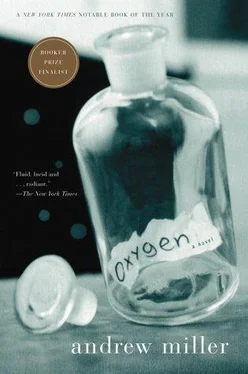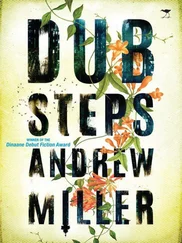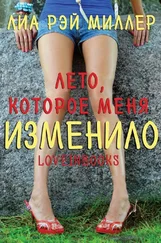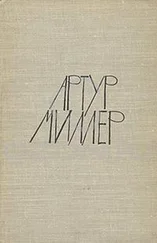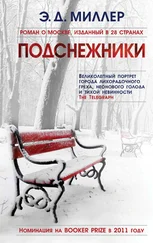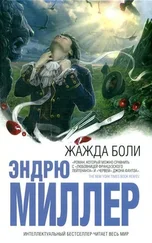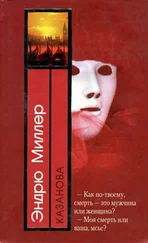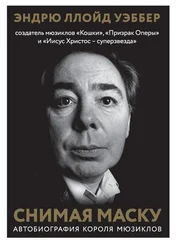‘Karol likes me,’ said Franklin. He opened the freezer compartment of the fridge and pulled out a bottle of Zytnia vodka. In the warm air of the kitchen the glass quickly frosted. ‘Russian hooch!’
‘Polish,’ said László. ‘Russians drink gasoline. Diesel oil.’
‘Nothing wrong with diesel oil,’ said Franklin, stowing the bottle in one of the pockets of his jacket. ‘You can go on with my wife now. I’ll shoot you later.’
‘You’d miss,’ said László, turning back to the chopping board. ‘You’d miss for sure.’
Long-time resident of the sixth arrondissement, author of Saying Yes, Saying No (1962), of Flicker (1966), of Sisyphus Rex (1969, his first play in French), and thirteen other productions all well received other than by those critics of the far left or far right who found his work maddeningly uncommitted; one-time artistic director of the Théâtre Artaud in San Francisco, now part-time lecturer in Dramaturgy and Eastern European literature at the Sorbonne (Monday and Thursday afternoons), László Lázár struck the veal and recalled his first encounter with the Wylies, a night in ’61 in a jazz cellar on rue St Benoît, when the woman who now sliced vegetables at his side, telling him about her insomnia and her trouble with doctors, emerged from a cloud of tobacco smoke, her hair cut short like Jean Seberg’s in A Bout de Souffle, smiling at him as he sat at a table with a half-dozen other émigrés, pale young men with bad teeth smoking maize-paper cigarettes and drinking slowly in a doomed attempt to save money. Her smile then had told him everything important he needed to know about her: that she was kind, and as much without darkness as any human being he would ever encounter. István invited her to sit and found a chair for her, but it was László she talked to, leaning forward under the bray of the saxophones to laugh with him and listen to his thickly accented French. Fate, of course, if you believed in such things – kismet. And later that evening came a second such moment when she introduced him to a crop-haired American, a tall, loose-limbed athletic type with the steady blue stare of a Hollywood farm boy. Franklin Sherman Wylie – only five years older than László, and yet as he stood behind Laurence, his hand across the shoulder strap of her dress, his old GI shirt spattered with paint stains that he wore like medals, he seemed gifted with that same glamorous and manly confidence Péter had possessed, and which László found so lamentably absent in his own life.
As they came out into the starlit oxygen of St Germain and said their goodbyes in the narrow street, László’s heart, always inflammable, ignited; but though he desired them both, it was Franklin he kissed in his dreams, a truth that Franklin soon discerned and then tolerated with an amused grace. The following week they went together to see Krapp’s Last Tape sung by Michael Dooley at the Sarah Bernhardt Theatre, then sealed the friendship, always a delicate thing of three, in an epic night walk to Sacré Coeur, ending at first light in a bar beside Les Halles, breakfasting on pig’s trotters and Alsace beer.
Such was the template. He had no idea how many other nights there had been. A hundred? Five hundred? But of all the things that happened to László in those years – and much else did happen: lovers of both sexes, trips to Italy, Spain and America, winters in ateliers dangerously heated with paraffin stoves, working on draft after draft of play script – those rambles with Franklin and Laurence, the mood a mix of high seriousness and high foolery, were the reason why ’61 to ’69, the Algerian crises to the Apollo moon landing, had for him now, looking down from the height of his fifty-ninth summer, an almost intolerable glow of nostalgia. The years before belonged to another world entirely. Cold schoolrooms. Youth parades. Speeches on the radio. His grandparents’ stories of Admiral Horthy on his white horse. The seamed and weary faces of his parents, both of them doctors at the Peterffy Sandor hospital. And the revolution, of course. Sweet Budapest.
Then, as though they had been swimming farther out than they had realized, the three friends were caught up in the grim business of success. Franklin’s big aerosoled canvases were bought by image-conscious banks and dealers in New York like the Wildenstein family, while László’s plays, with their insistence on the futility of action, began to seem prophetic, and drew first-night crowds of the chic and famous. Laurence became a darling of the lifestyle magazines on both sides of the Atlantic (‘AT HOME WITH MRS FRANKLIN WYLIE’, ‘LA BELLE MUSE FRANÇAISE DE FRANKLIN WYLIE’), but she exited her thirties childless and with many anxious lines on her face. That charm which had made men of all ages want to be her friend, but also to put a hand on her thigh, showed itself more fitfully as each of her husband’s feebly concealed infidelities left its mark. Franklin became a specialist in rage. On his fortieth birthday, inspired by demons whose names László could only guess at, he rammed his car into the side of a tour coach full of startled though miraculously unhurt elderly Americans on the rue des Ecoles, and was only saved from the consequences by the US ambassador, who persuaded the police to view the incident as essentially artistic rather than essentially criminal. Two years later, he beat up, with no obvious provocation, the owner of a Lebanese restaurant in Belleville with whom he had long been on friendly terms. Most recently he had been fined five thousand francs for throwing his chair at a waiter in the Brasserie Lipp (a fellow with a moustache like a hussar). But for László, nothing in this catalogue had been more dismaying, more sad and perplexing, than the day he called at the apartment on rue du Deguerry to find Laurence carefully scraping dried food off the wall of the studio, the floor brilliant with smashed glass and china. It was the moment he had given up trying to understand them, for unless you had grown up beside a person from the beginning, had breathed the same air, there was too much about that life you would never be able to explain. You had to love, if you loved at all, as an act of faith, uncomprehendingly.
He seasoned the escalopes with salt and pepper and lemon juice. The big Creuset frying pan was on the gas. The butter, a creamy demi-sel from the butcher’s where he had bought the meat, was beginning to bubble. He fried the escalopes lightly on both sides then took them out and placed them on a side dish of thick white china that had fine blue lines like little veins running beneath the glaze. He took the chopping board from Laurence, kissing her hair lightly, then sautéed the shallots and mushrooms and threw in a handful of chopped parsley. Finally, he wrapped the veal, mushrooms, parsley and onions, together with slices of ham and thinly cut Parmesan, in heart-shaped pieces of greaseproof paper that he had carefully buttered with his fingertips. When he opened the oven door the heat broke over his face in a gentle wave. He placed the parcels on the middle shelf and shut the door, leaving butter prints on the steel handle.
‘Twenty minutes,’ he said.
‘I’m OK now,’ said Laurence, brushing a lock of hair from her brow with the heel of her palm.
‘Good,’ said László. ‘We’re too old to be miserable.’
Just then, the gun went off.
Alice lay with her head propped on a nest of pillows, dabbing at her eyes with a little ball of pink tissue paper. She did not know why she was crying, why now, specifically, though she had felt obscurely upset after her little conversation with Alec. He had been interfering, of course, standing at the end of her bed, peering through his glasses, his ‘specs’, pretending to be some kind of doctor perhaps. But she had been rude to him and now she was sorry. Unless the drugs were to blame. How could she tell? How could she know what was her, the old Alice, and what was some kind of toxic side effect? Is this me? she thought. What am I now?
Читать дальше
